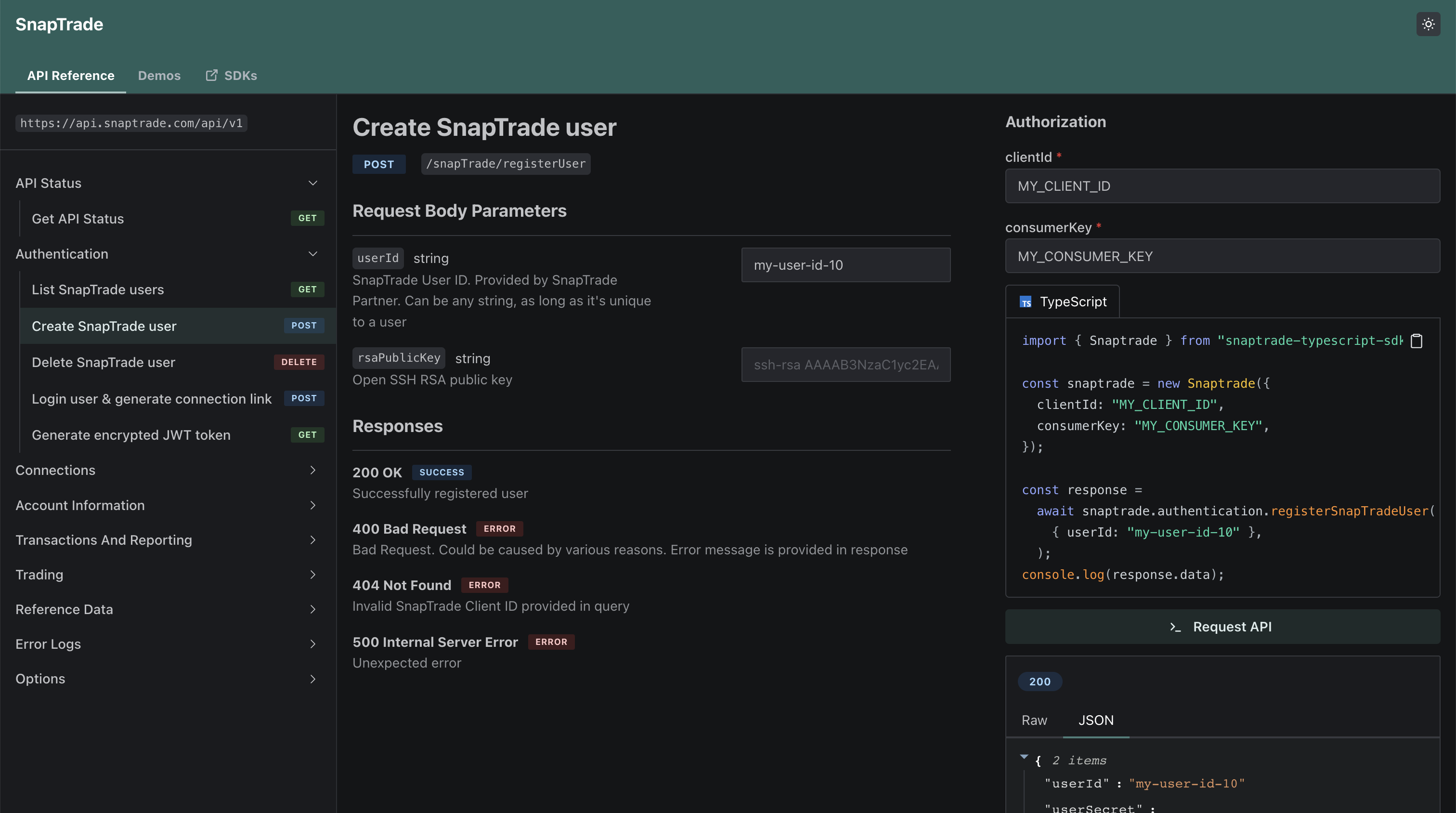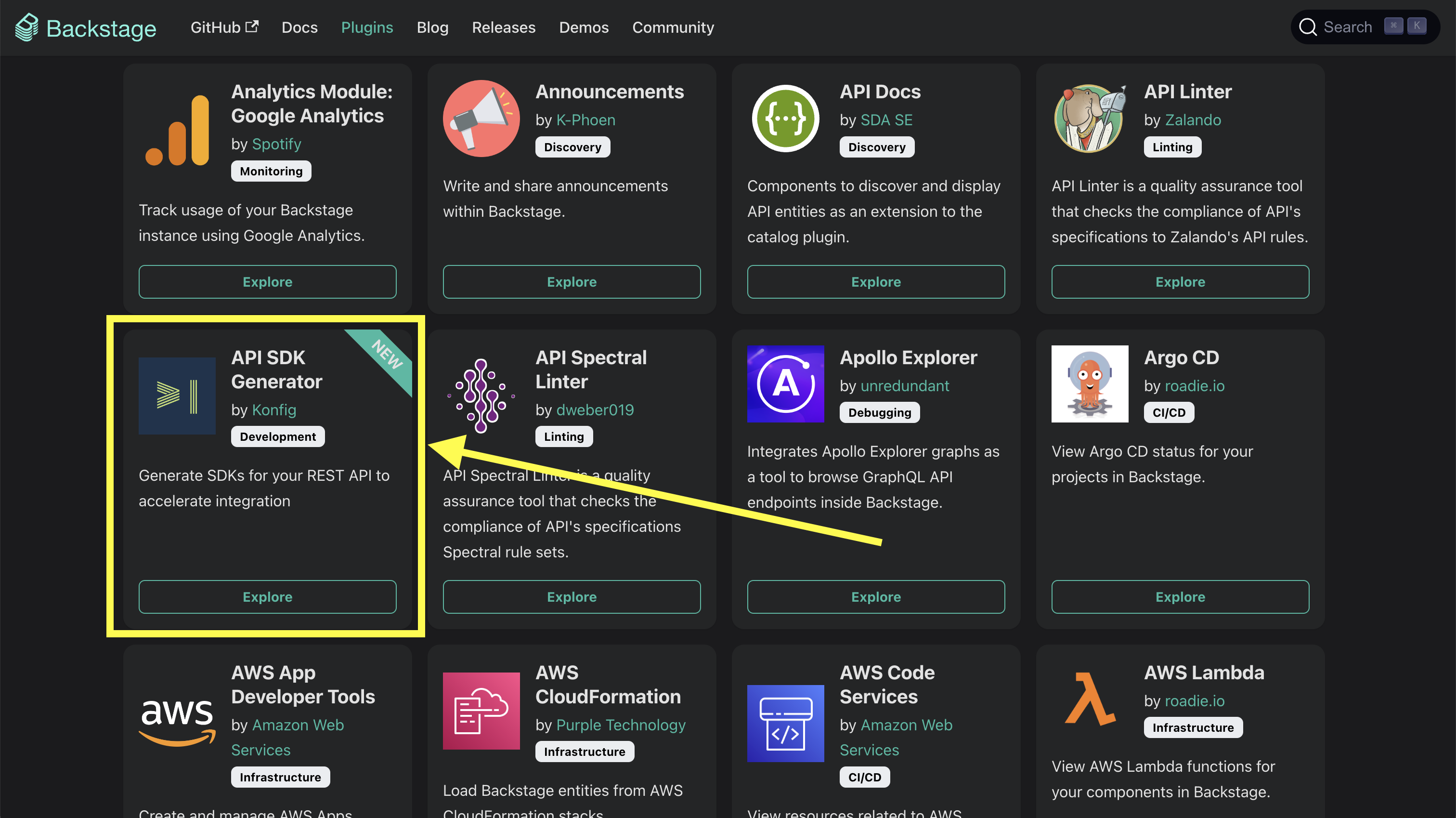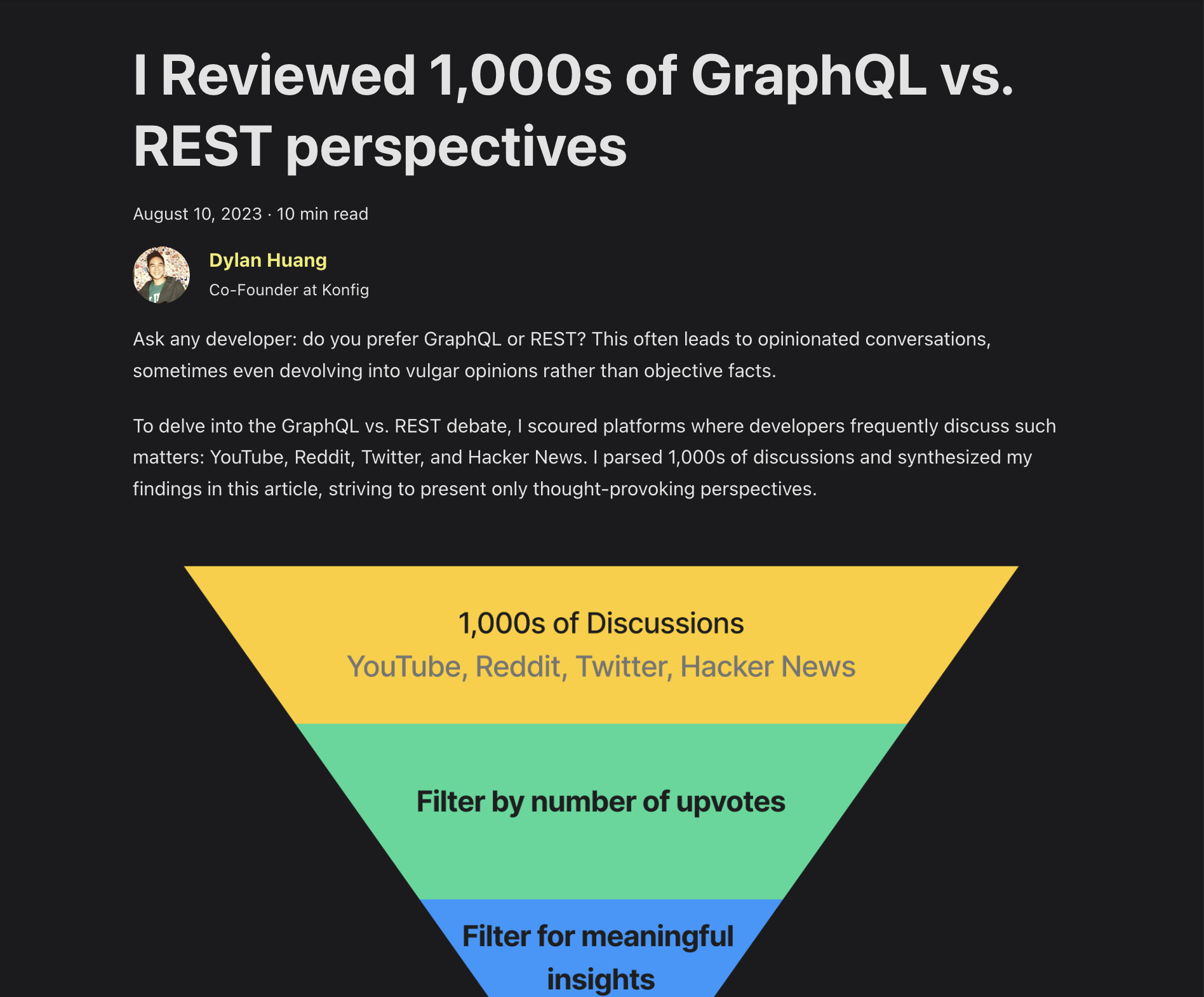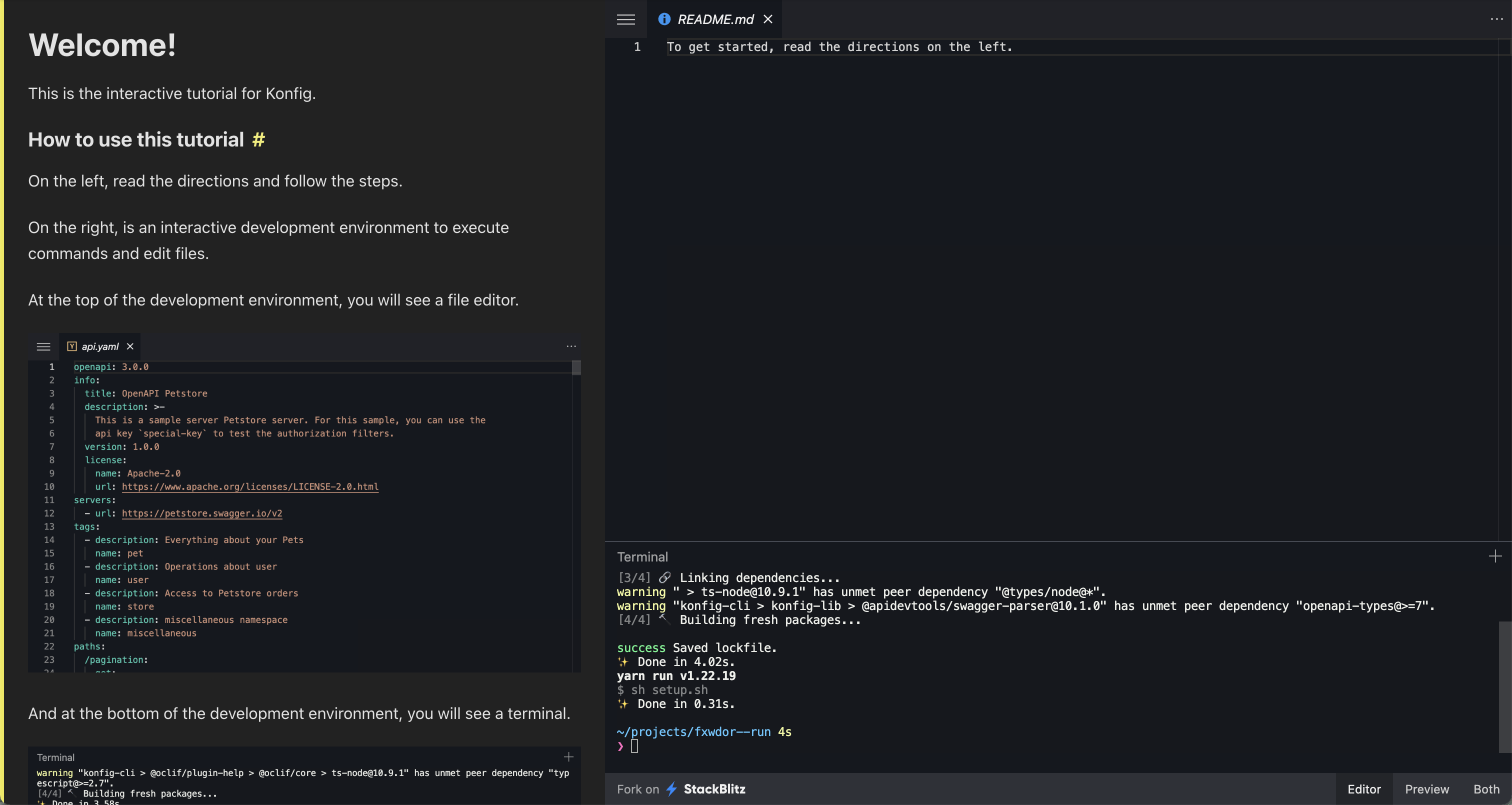We are excited to announce the launch of our newest product at Konfig!
Introducing: API Reference
The Problem
The next step after generating SDKs is adding them to your docs. But as soon as you do, something feels off. Your API reference is not integrated with your SDKs and you have to maintain two separate pages. You manually copy-paste code snippets from your SDKs to your docs and you have to update them every time your API changes. So we created a better way.
The Solution
Introducing API Reference by Konfig. It's a single page that combines your API reference and SDKs. It's automatically generated from your OpenAPI spec and SDKs. It's always up-to-date and it's always in sync with your API. It allows you to dynamically generate code snippets for your SDKs and make API requests directly from your docs. It's a single source of truth for your API.

Currently, we are deploying with a few early customers. If you are interested in trying it out, please reach out to dylan@konfigthis.com.
Improvements and Fixes
- Allow for configuration of a specific operation in SDK README.md files
- Remove quotes from strings when copying in demo portal
- Added "konfig versions" command to CLI to query currently published SDKs
- Add a one-time deprecation warning for deprecated operations in Python SDK




